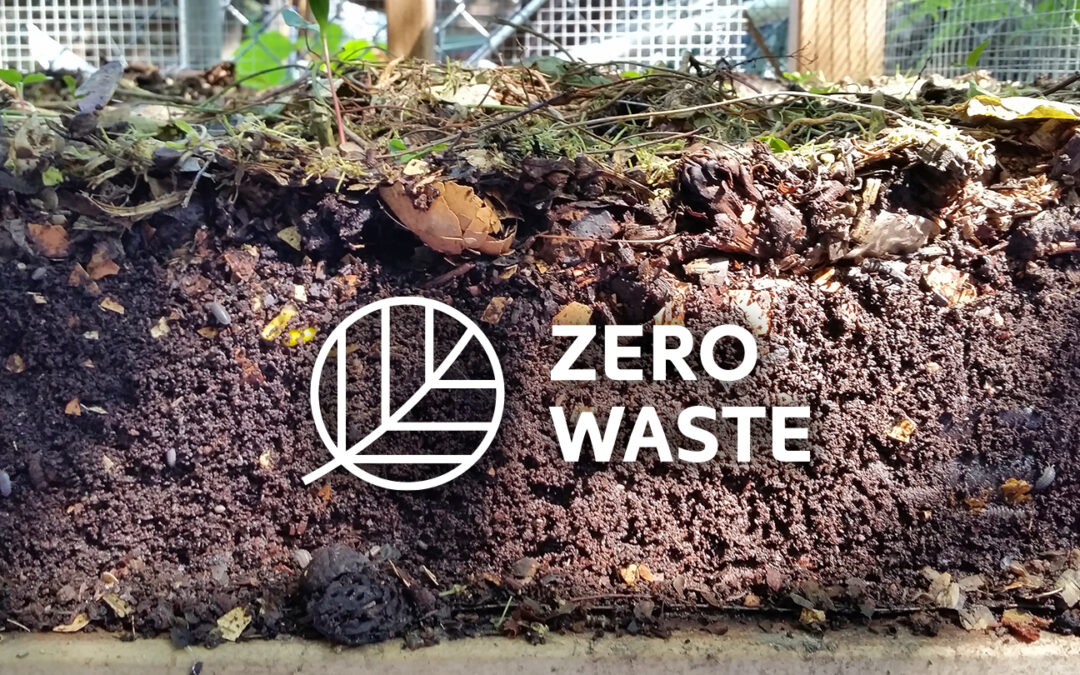Single-use plastics and EPS foam containers are polluting our environment and using up valuable natural resources. Evanesce is passionate and supportive about initiatives being implemented in every city on the planet to reduce the plastic waste that ends up in our landfills and oceans. Many cities and countries are introducing restrictions and bans on single-use products and while at first glance, this may seem like a good idea, these restrictions are also being made on compostable materials.
Why? Misinformation and incomplete data. While we agree that there are many benefits of using reusable containers, some legislators have drawn conclusions that are inaccurate and potentially harmful in regards to compostable materials. In particular, reusable isn’t the answer to a circular economy and doesn’t address America’s 133 billion pound food waste problem.
To become a zero-waste community that supports sustainable choices and reduces waste disposal is only reasonably achievable if the city invests in composting, composting education and a composting infrastructure that accepts all materials that are certified as compostable.
Why Composting is the Answer
- “Organic waste in landfills generates, methane, a potent greenhouse gas. By composting wasted food and other organics, methane emissions are significantly reduced.”
- Compostable Packaging Diverts Food Scraps from our Landfills
“Compostable packaging is a proven way to collect more of the food scraps that are currently being landfilled or are contaminating recyclables, and instead drive the recirculation of biological materials” - Composting can reduce or eliminates the need for chemical fertilizers.
- Compost promotes higher yields of agricultural crops.
- Compost can help aid reforestation, wetlands restoration, and habitat revitalization efforts by improving contaminated, compacted, and marginal soils.
- Compost can be used to remediate soils contaminated by hazardous waste in a cost-effective manner.
- Compost can provide cost savings over conventional soil, water and air pollution remediation technologies.
- Compost enhances water retention in soils.
- Compost provides carbon sequestration.
- Composting creates a nutrient-rich fertilizer that can then be used to grow a feedstock to create brand new materials.
- Compostable food service products come from renewable sources. Whether its corn, sugarcane, or paper, everything can be made again in nature so we’re using resources at a more sustainable rate than petroleum-based plastic.
- Over 50% of the waste taken to landfills can actually be composted, the bulk of which is food waste. If we removed this waste and composted it, we could greatly decrease the amount of land space that is currently occupied by landfills.
Certification and Labeling Is Not Out of Reach
Some composters have remarked that compostable bioplastics are indistinguishable from conventional plastic products and regularly screened out at composting facilities but this would be easily solved if petroleum plastics weren’t available and compostable plastics were the only material in circulation. In addition, natural colouring and BPI certification labels can be easily added to compostable serviceware products to make them easily distinguishable. With the education of the meaning of a BPI Certified material, composters would not screen out these materials.
In addition, the introduction of penalties for counterfeit products, similar to how organic foods are labelled and regulated by the Canadian Food Inspection Agency (CFIA) and the U.S. Food and Drug Administration (FDA) would allow only certified compostable products to be circulated.
What is BPI Certification
BPI Certified compostable products, compost in 90 days or less. By using a scientific process, BPI officially certifies compostable products that meet ASTM D6400 and ASTM D6868 standards for compostability. ”BPI Certification proves that a material will compost in a composting facility, leaving behind no toxic residue or microplastics.”
Reusable isn’t Realistic
Even those with the best intentions to use reusable bags, coffee cups and dishware forget these items at home. Not everyone plans ahead to visit a coffee shop, bakery or restaurant, especially tourists. Should we penalize visitors to cities for not traveling with a full set of dishware and beverage containers? Will visitors frequent these stores less because of the additional cost?
Reuseable containers also carry an environmental footprint that is most often overlooked. When assessing 12 environmental impacts across the entire life cycle of a food container, you’d have to reuse a container 16 times to “counteract” the impact on air pollution of using the single-use container – and 208 times to counteract the impact of resource consumption.
100% adoption of reusable serviceware is simply not realistic. Shouldn’t we allow the most environmentally friendly alternatives be available when reusable items aren’t practical or possible?
Paper is Poison
Paper can’t be trusted as a biodegradable solution. Paper products that aren’t BPI certified can contain toxins such as PFAS and “forever chemicals” that have been linked to cancer, thyroid disease, hampered immune function, and early puberty, among other ailments. They also can be coated with petroleum plastics which contain toxins and microplastics. Even with paper, labeling must be enforced to be sure it will biodegrade.
Composting is Less Expensive and Not Complicated
Recycling isn’t working. In the USA, just 5% of plastic waste is recycled and “about 86 per cent of Canada’s plastic waste ends up in landfill, while a meager nine per cent is recycled.” Recycling confusing for patrons and most of what is collected for recycling ends up in a landfill anyhow.
Imagine ordering from a fast-food restaurant where your straw, cup, lid, plate, cutlery and leftovers all go into one bin – simple. This is the goal of sustainable, compostable foodware. Where all our waste ends up where it originated, back into dirt with no trace of toxins or microplastics.
We implore legislators to implement programs that will truly work towards eliminating waste and contribute to a circular economy. Let’s get the world composting and we’ll be closer to a zero-waste future!

